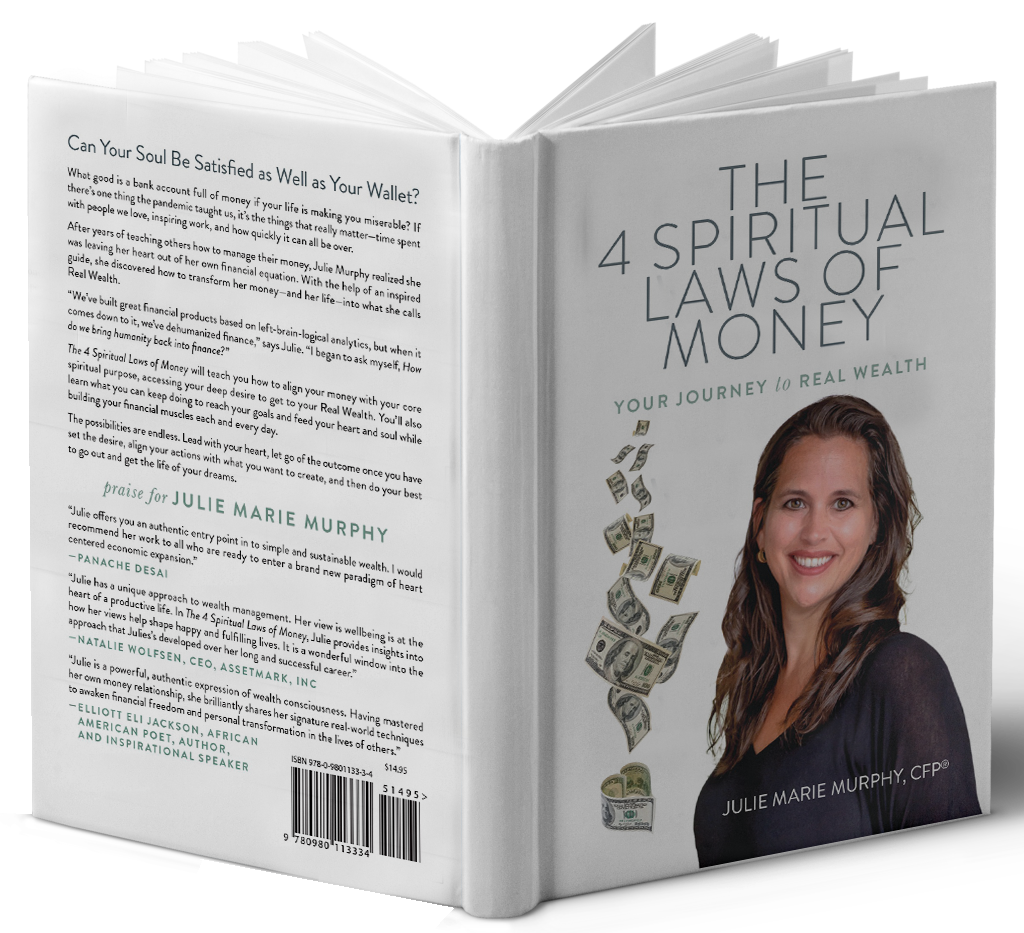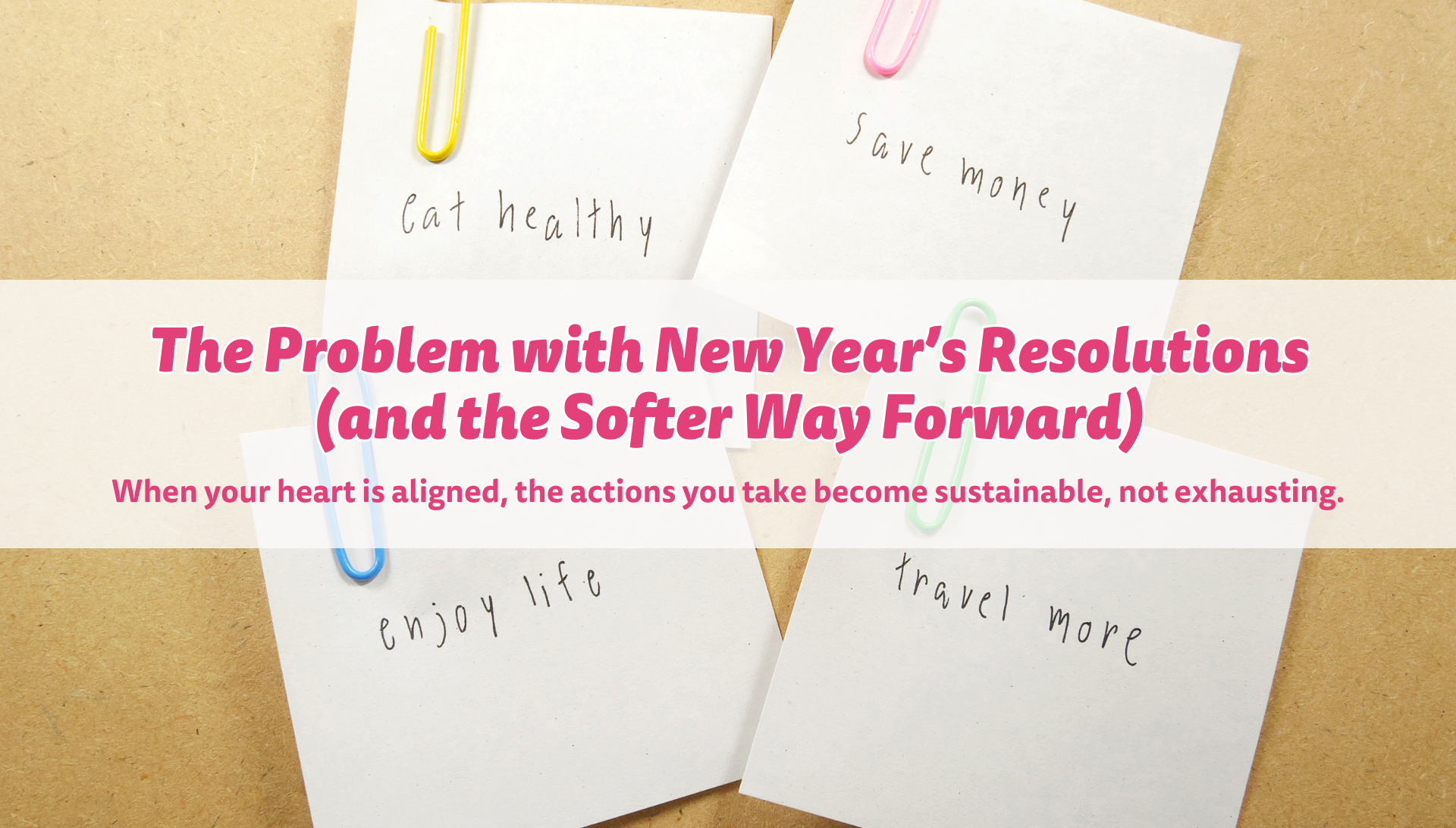Financial Fears: Time to Let Them GO….
Who’s got them? My guess is most of us. They come and go over time, sometimes with more intensity and sometimes less. Why? This comes from our past conditions in the families and communities we grew up in. We learned emotional response systems from those we started our lives with and continue to attract those that reinforce those belief systems. We’re more stuck in our daily groves, with the appearance, that it is harder and harder to change the more time flies by. I’m here to tell you, anything can happen, no matter what age you are, how many failures you’ve had or how many people are counting against you. All you need is the real you to show up…and to recognize why these patterns keep persisting in our lives.
Think of it like this, years ago, I was watching TV. I was watching a cooking show. Not one with a huge celebrity chef cooking, but a show that brought in everyday people to share their family favorite recipes that had been passed down for generations. This young woman, in her early 20s, was picked and she was so excited to share her great grandmother’s baked ham recipe. As she prepared the food live tv she was very methodical going through things step by step. The host that day asked her, “Why are you cutting both ends off the ham before you put it in the oven?” The young woman responded, “I’m not sure, that’s just how we’ve always done it in our family.”
As she continued preparing the ham to go into the oven, the host was still perplexed as to why she cut off the two ends of the ham, and then tossed them into the garbage. The host challenged the young woman. She said, “Can we call your mom why you cut off the edges and throw them away?” Of course, the young woman agreed. They called mom and she said, I’m not really sure, let’s call grandma. “Grandma, can you tell me why we always cut off the ends of the baked ham when we do our family recipe?” Grandma stated, “I don’t know, that’s just how my mother taught me.” Her great grandmother was still alive and the host asked if it would be ok to make this third phone call to great grandmother to solve the mystery.
Great grandmother was happy to take the call, at age 92, and said, “Oh sweetheart, I cut the ends off the ham because the pan I used for years was too small to fit the whole thing.” Can you believe it? Really! Four generations this recipe got passed down and they were cutting off the edges of the ham and throwing them in the garbage all because great grandmothers’ pan was too small. Crazy!! This is a simple example of how patterns stick in our lives and we don’t even know why and ask if the reasoning is even relative to today.
So what does this have to do with our financial fears? Our fears are the same way. The conditioning that we have learned from past generations stick with us and most of it isn’t our stuff to begin with, but this is how we learned to emotionally respond to the world and how we handle to our financial world daily. Some cultures don’t believe in banks, they use currency exchanges to cash their checks. Some cultures like to keep wads of cash in their house because they lived, or their past relatives, lived in a period of time when it was not safe to put money in the banks, particularly in eastern Europe during the communist phases of history. And I could go on and on about how these fears have impacted behavior in many other cultures and how it impacts how we interface financially today. We all have them, the question is what are yours and are they supporting the life you, and only you, want to live today?
Realize our financial fears really don’t come from our money. Money is one way we act out our unprocessed, unfelt, emotions. Remember, Einstein proved that energy is neither created nor destroyed it just changes form. So, if you have an emotional charge about something, a fear, and you don’t directly address it at that moment in time, the energy either gets stored in your body or exits your energy field some other way. The level of debt in our world today is the proof in the pudding that we are NOT processing our emotions in real, present time. We’ve been taught to be polite, don’t do this, don’t do that, be politically correct and all this stuffing in, is acting out with our spending. We are creating debt, and huge levels of it. You see this on the personal financial level, corporate, non-for-profits, and governmental financial levels, it’s everywhere. We are in over our heads and this too will come to a striking halt at some point if we don’t address why it’s being created in the first place. So much of it is fear driven. Fear of not having what someone else has. We are expressing fear of being rejected, and not being accepting by society’s norms, regardless if it’s really important to us or not. We’re caught up with what is outside of us, instead of focusing what is true for us in the inside.
You may have convinced yourself that you only have “good debt”. Debt is like a venereal disease, never really actually good and once in the cycle, it never really ever goes away. I have plenty of financial experts in my field that would completely argue with me on this point. They would say something like, well, if I’m paying 3% on my mortgage and after the tax deduction on the interest, I’m really only paying out 2%, why would I not put more of my extra cash into something that makes more return? From a pure financial standpoint, this is correct, but if we don’t look under the hood what motivated to have that debt in the first place, you will stay in a trap that is really hard to get out of, it becomes a debt living lifestyle. We keep upgrading our houses, buying more expensive cars as we age with more bells and whistles, etc. When you create too much debt, whether it be student loan debt, mortgage debt, car loan debt, credit card debt, etc, you get stuck in your financial past decisions. This doesn’t allow you the space to be nimble to live in the present moment or change the trajectory of the future you want to create easily. This is how our fears get reinforced in our limiting belief systems for our past conditioning.
Wow, that’s a mouthful….let me say it again. When we make financial decisions that are conditioned from those who taught us and the influences of our personal experiences, we are responding in a way that is primarily fear based in most situations. You can see this when you keep having negative outcomes, or not expected outcomes in your financial life. Goal is to start to become the observer of your financial life. Don’t judge where you’re financially at, just look, just observe. What do you see? It’s ok to look, it’s ok to cry, it’s ok to get so pissed off that you punch the wall, ok, that may be a bit extreme, but you get my point…get those emotions up and out so we can heal those financial patterns that we being recreated over and over again that don’t support the “you” of today.
Money is energy. To overcome your financial fears once and for all, you have to tactically start to move your money into the directions that really support the new you. Become financially fearless!! Now don’t go being a recluse, don’t be extreme because that is never sustainable. Bite size pieces. When I say become the fearless financial version of yourself, that means have the courage to decide to leave that crappy job that is really not feeding your soul today. You know that one that is giving you a paycheck that you feel you can’t walk away from, but yet you can with a plan. It’s about just start being willing to put together the list of your dream job. Let me share a story of someone who faced this job situation head on.
Someone close to me was in a good job. It was stable, income was decent, she liked most of the people she worked with, but her dream job posting had come to her attention. She found out that they were considering three people inside the company for the job. She would be the only outsider considered for the position. It would have been easy to give into her fears and do all that negative self-talk of the low odds of her actually being picked since she didn’t already work there or have any relationships with those she’d be interviewing with. Blah, blah, blah….. I told her that was a bunch of hogwash. If you believe it, then it will be true.” She felt like to total underdog, she was younger, an outsider and she didn’t have as much experience.
I told her, “You need to turn the tables. You need to shift the energy of the interviewing process.” She looked at me like I had ten heads. “How do you turn the tables?” she asked. I said you need to interview them, not the other way around. She was not exactly sure what I was referring to. I told her it was about going through the interviewing process from a place of being their equal as opposed to being the beggar, the underdog. She needed to be clear as to who she is at this moment in time, the job functions she would love to do day in and day out, the type of people she wanted surround herself with from her co-workers, boss, and company culture, how much travel she wanted to do with the position, what her ideal income would be (she needed to claim her number BEFORE they made her an offer, this way one doesn’t chicken out), etc.
Why go about it in the fashion? When you do, you maintain your personal power and you don’t turn it over to the other party. I had her type out all the details of her desired work life on a piece of paper. She sent it over to me and I began to blow holes in it. I see this all the time, the first time someone gives me their list, they are always general and very corporate in nature. Putting down what they think they should put down, instead of what they really want. They’ve usually dumbed down the list to be what’s “acceptable” to the masses to not offend or trying to be way too politically correct. STOP IT!!! Don’t do that anymore people. We need to claim who we are today and don’t accept anything that isn’t in alignment with that. I told her that if she really claimed who she is and what she really wanted and they don’t give her the job offer, then it was the wrong job anyway. It would be a gift to find that out sooner than later. Why are we so afraid of that? It’s ok to not go to a job that isn’t your ideal world. Just like earlier this year, I chose to cancel my contract with Hay House to publish my second book because I was being treated like secondary citizen. Instead of continuing the feeling of being disempowered, I chose to leave and feel empowered again about my work in the world. You can do it too. You just have to muster up the energy and courage to do so.
In the end, she had to really dig deep, not be so corporate in her list she typed out. I suggested she make a final copy for each of the eight people interviewing her and get them a copy and have a copy herself. Why put on paper? Because then you won’t chicken out again…our nerves can really get the best of us sometimes, so put yourself in a position where there’s no turning back. Position yourself to be lucky to let your freak flag fly!!
She made it to the 2 nd round of interviews and had to do a presentation. She nailed it. Two days later, she was offered the job. The offer was for $20K more than she was making at her current job. I went after her again, why? Because when she wrote down her income number at the beginning of this process, the offer was for $10K less than what she thought she was worth. They also gave her less vacation days. I asked her, “Do you want to lose quality of life to work for this company?” She looked at me confused again. Another pattern I see often at this part of the process. I said, “If you choose to have less days off per year, then you are giving up your freedom. Do you want this?” Keep your power, overcome those fears that will creep up. I recommended she go back them and say, thank you for the job offer, but I require $10K more per year in salary, and ten more days off per year. This would give her five more than she had, so she would gain more quality of life.
She went back to the corporate giant. She did the deed. She was nervous as all get out. Before the end of the day, they called and said they could give her $7K more, which was $27K more than her current job, and they said she could work one day per week from home and gave her more days off. What I’ve learned through the years is that ACTION is the best way to work past your fears and solidify a new response system, which gives you a new reality. It’s the only way to do it. Why? Because along the way you are shifting your energy in present time, despite the jitters, and that makes it a new you.
I’ll be giving some tips and tools over the next few months if you like, Click here to get on my mailing list to get access to them over the next few months before my book comes out. Sign up here to receive notice of samples of my second book, Awaken Your Wealth: Create a PACT to Optimize Your Money and Your Life which will give readers a deep dive to work on their patterning and create a new which will come out this fall. Let’s Awaken Your Wealth together, you deserve it!!
The post Financial Fears: Time to Let Them GO…. appeared first on Julie Murphy.
Share Blog On Social
Recent Blogs

Similar Blogs







